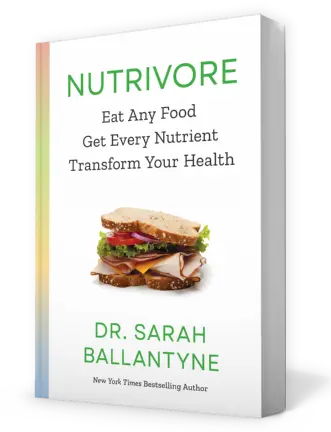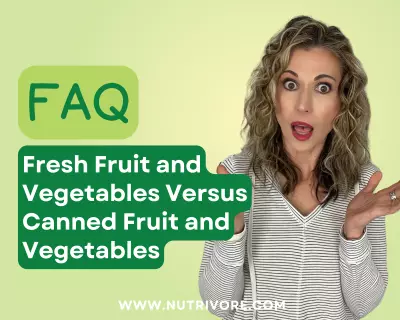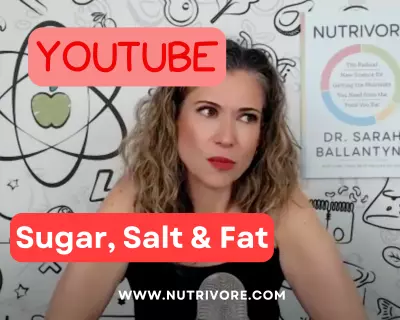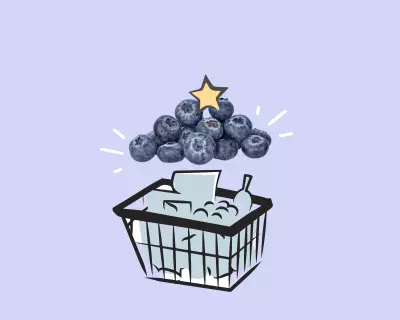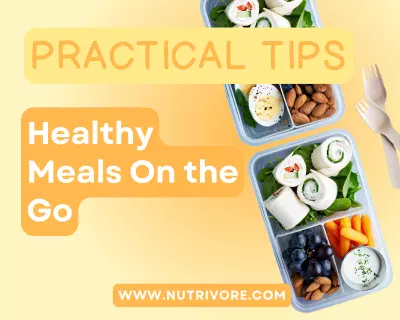Fresh Fruit and Vegetables Versus Frozen Fruit and Vegetables
People often wonder when it comes to a healthy diet which is more nutritious – fresh vegetables and fruit or frozen vegetables and fruit. Let’s look at what the science has to say!
Although we often assume fresh fruits and veggies are always the most nutrient-dense option when available, the opposite can actually be true. In fact, frozen fruit and frozen veggies can be even more nutrient-dense than fresh ones! Why? They are picked at peak ripeness, which maximizes their nutrient content, and the freezing process happens quickly which helps to preserve all their valuable vitamins, minerals, and antioxidants —yes, even over long-term storage!
For example, raw fresh broccoli has a Nutrivore Score of 2833 whereas frozen unprepared broccoli has a Nutrivore Score of 2925. Fresh kale boiled with salt has a Nutrivore Score of 3644 whereas frozen kale boiled with salt has a Nutrivore Score of 3945. And, raw cauliflower has a Nutrivore Score of 1585 whereas frozen is nearly identical at 1574.
Of course, foods that are picked ripe and consumed fresh are great options but may not be readily available for most of us for numerous reasons such as affordability, access, and seasonality. The fresh produce available for purchase at the grocery store is often picked before fully ripe and has spent time in transport, in the store, and refrigerated in our homes prior to consumption, which results in loss of nutrients. While fresh vegetables can lose up to half of their vitamin C between the time they’re picked to the time they make it to your grocery shelf, most other nutrients are very stable during storage, at least until the vegetable starts to spoil. However, some fruits and vegetables have shorter a shelf life meaning they are more prone to nutrient loss through storage than others, and vegetables especially sensitive to loss of antioxidant activity include cucumber, zucchini, broccoli, Brussels sprouts and leeks. These are the veggies that it’s most important to consume as fresh as possible, by shopping at your local Farmer’s Market and by eating them as soon as possible after purchase. But, these vegetables are still great choices, even if they aren’t freshly picked. And, a great way to maximize the benefits of these veggies, while saving money, is to buy frozen or canned!
Frozen vegetables and fruit tend to be more cost-effective than fresh, and because they won’t go bad as long as they stay frozen (longer shelf life), buying them can help to reduce food waste. Frozen foods also usually come pre-prepared (washed, trimmed, chopped, pre-portioned, etc.) so they can also save time in the kitchen. Incorporating frozen produce into our meal prep also gives us access to fruits and veggies that are out of season!
Bottom line, when it comes to healthy eating it matters much more what foods are on your plate than whether they are fresh, frozen, or canned. Frozen produce and fresh vegetables are about equal in their nutritional value, so go ahead and choose the one you like, have access to and can afford. All provide plenty of nutritional benefits and are great options when it comes to our overall health!
Eating just three servings of vegetables daily can reduce the risk of all-cause mortality (a general indicator of health and longevity used in scientific studies to determine if something is good or bad for us overall) by up to 25%, along with other numerous health benefits! And, it doesn’t matter if those veggies are fresh, frozen or canned – the healthiest ones are the ones we will eat! Some of the easiest ways to increase our daily intake of fruits and veggies is to incorporate foods such as salads, stir-fries, soups, and smoothies or adding a side dish of fruit or veggies to our meals such as a side of green beans or peas!
Want to know how to measure and track the nutrient-density of the foods you’re eating, fresh, frozen, or canned? Check out my video!


